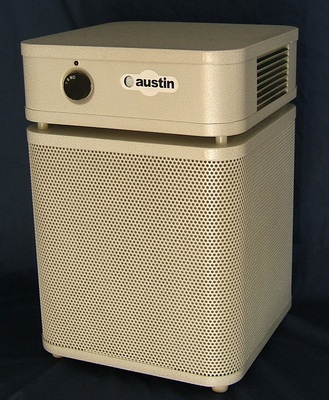Using HEPA air purifiers in the home is an easy and accessible way to curb heart disease say researchers.

Exposure to fine particles in the home can lead to blood vessel inflammation that leads to heart disease. In a recent study Canadian researchers found that HEPA air purifiers can reduce fine particle concentrations inside homes by 60% and woodsmoke by 75%.
The findings, published in the American Journal of Respiratory and Critical Care Medicine, specifically looked at the effects of reducing the amount of exposure to pollution from wood stoves in a small community in British Columbia where wood burning stoves are the main sources of pollution. They also looked at the effects of this decreased pollution on the cardiovascular system and on systemic inflammation.
The researchers recruited 45 adults from 25 homes. These homes were monitored for two consecutive 7-day periods. During the first week air purifiers were used in the main part of the houses and in the bedrooms with the HEPA filters in the units. During the second week the air purifiers were operated with no HEPA filter.
Excluded from the study were households who reported tobacco smoking. During the monitoring period the participants were unaware whether the air was being filtered.
“Our main objectives were to evaluate the potential for HEPA filters to improve indoor air quality and reduce pollution-related cardiovascular health risks and to better understand the mechanisms that contribute to air pollution-related cardiovascular problems” said Ryan Allen, PhD, Assistant Professor, Simon Fraser University.
“Specifically, we were interested in learning more about the effects of residential wood smoke on the endothelium, the cells that line the inside of the blood vessels, and on systemic inflammation, which is related to cardiovascular disease risk” said Allen.
To assess the effects on inflammation the researchers measured C-Reactive Protein – a reliable systemic inflammation marker. The researchers also measured reactive hyperemia which is an indicator of blood flow.
The researchers found that during the period when the HEPA air purifiers were in operation there was a 9.4% increase in the reactive hyperemia index and a 32.6% decrease in C-Reactive Protein. This indicated improved blood flow and a substantial decrease in inflammation with the use of HEPA air filters where wood stoves are used.
This study is very interesting not only from the point of view of cardiovascular health but also from the potential benefits of respiratory health. Inflammation is also a major cause of respiratory health problems – particularly asthma. A reduction in inflammation could have substantial benefits for those with asthma. Clearly, more study needs to be done in this area.